
20 Mar, 2020
Boracay “cesspool” shutdown goes viral, Planet Earth “cesspool” in clean-up mode
Bangkok – In April 2018, Philippines President Roderigo Duterte announced a shutdown of Boracay Island. His unprecedented move after describing one of the archipelagic country’s most popular tourist spots as a “cesspool” shocked the tourism industry and triggered widespread wailing about the loss of jobs and income. He stayed the course. When the island reopened after a six-month shutdown, it was like a magic wand had been waved. Other Filipino beach resorts, fearing a crack of the same whip, rushed to clean up their own acts.
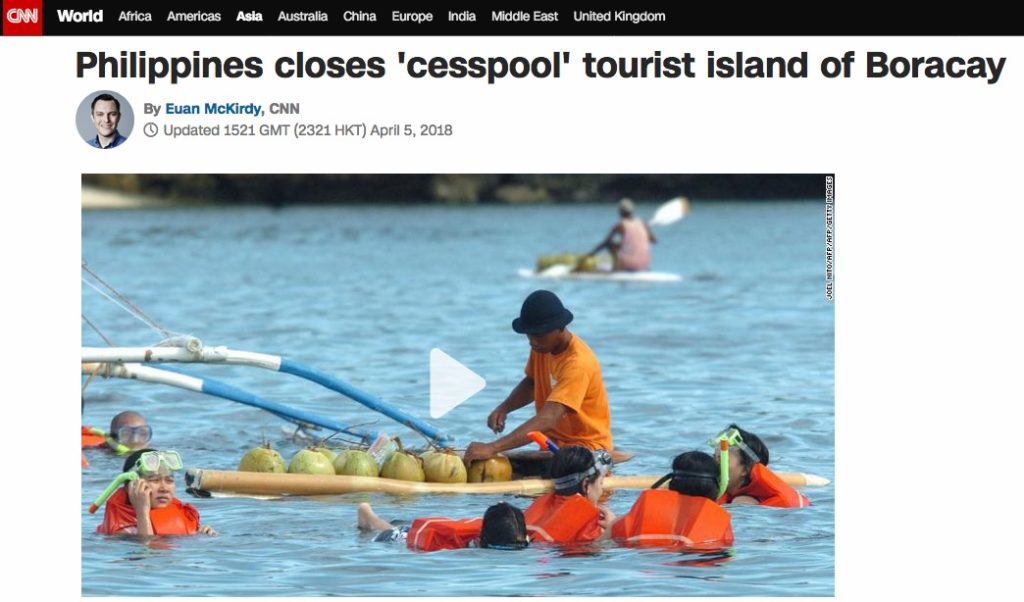
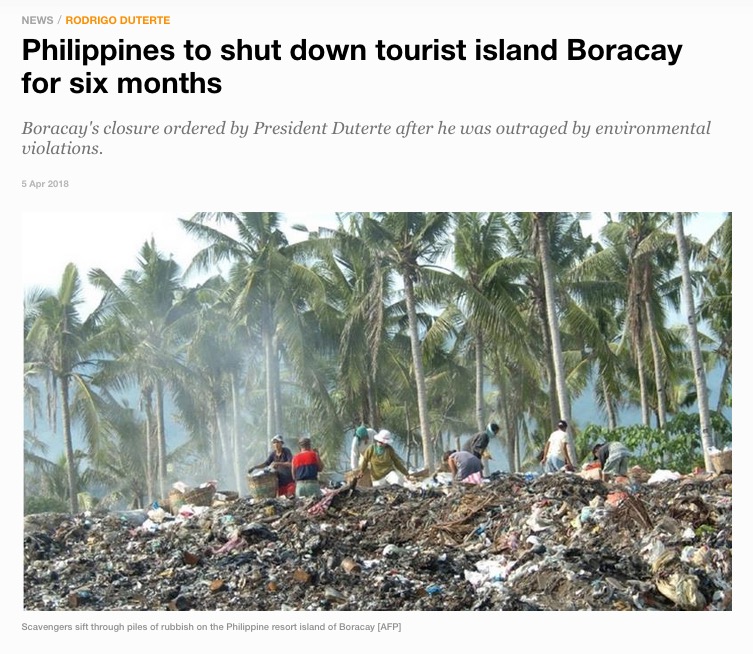
Today, that isolated shutdown has “gone viral”, thanks to a microscopic microbe named Covid-19. The shutdown/lockdown of entire cities and countries is causing colossal economic agony and damage. Just like Boracay and many other popular global tourism spots which became icons of industry excess, greed and over-indulgence, Planet Earth had become a cesspool of slime — environmental degradation, geopolitical conflicts, economic disparities, socio-cultural divisions, and more. As accurately predicted in the holy books of all the major religions, it is at exactly at this near-terminal juncture when an unexplained and unavoidably painful “correction” kicks in to reset and reboot the morally-bankrupt system.
Such a correction is here — bang on time!
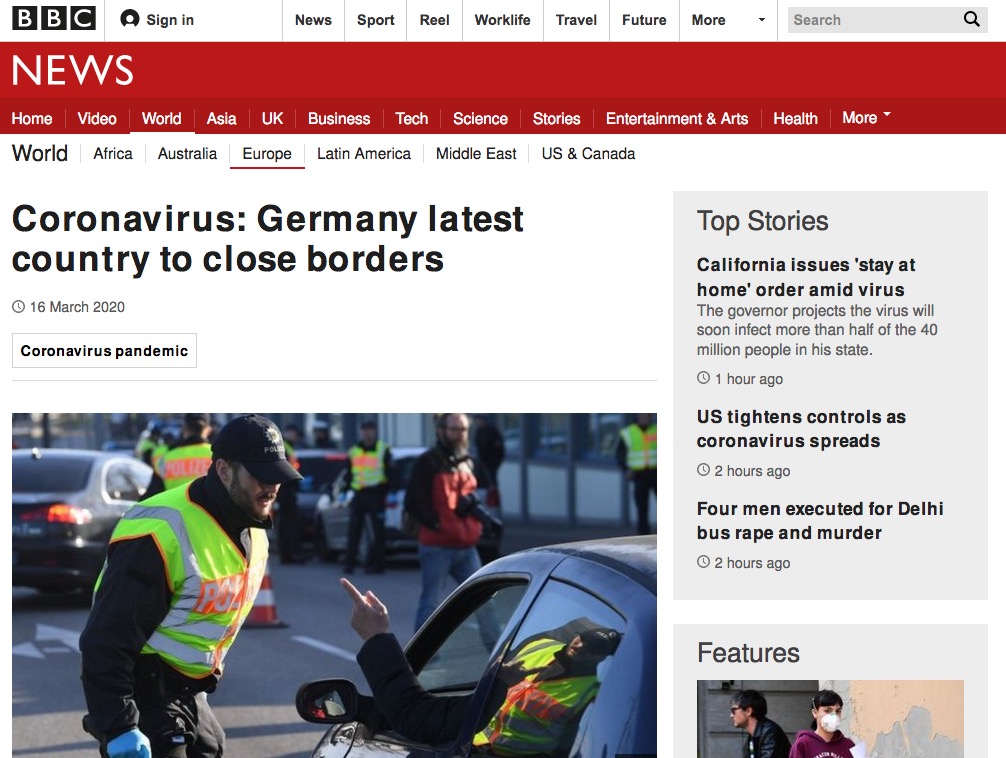
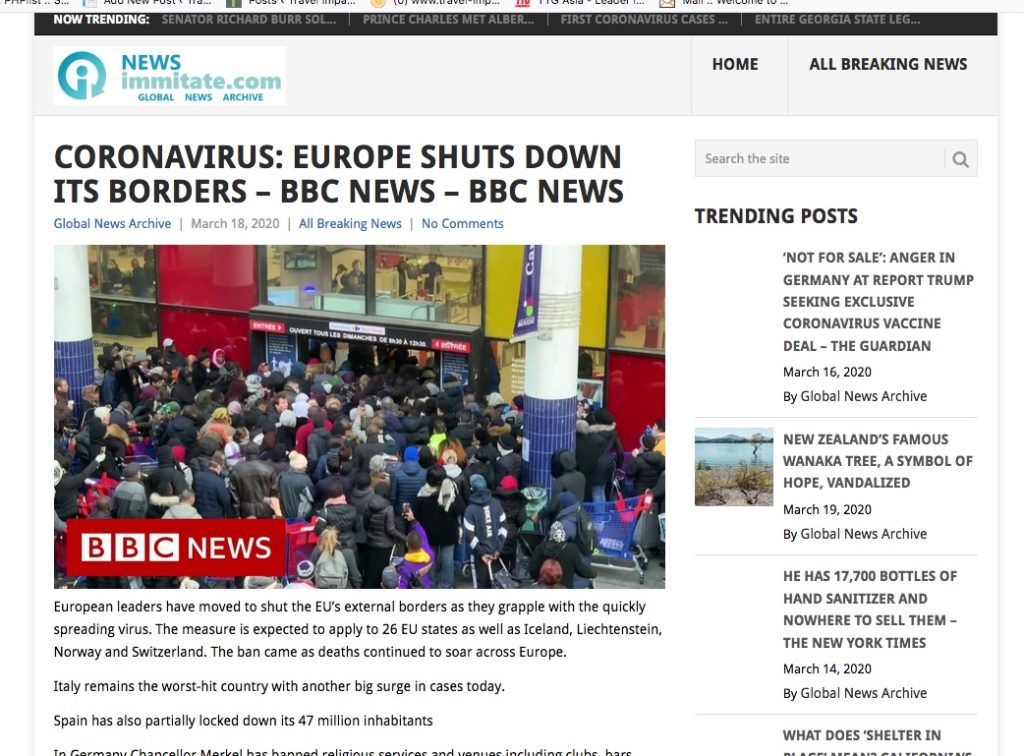
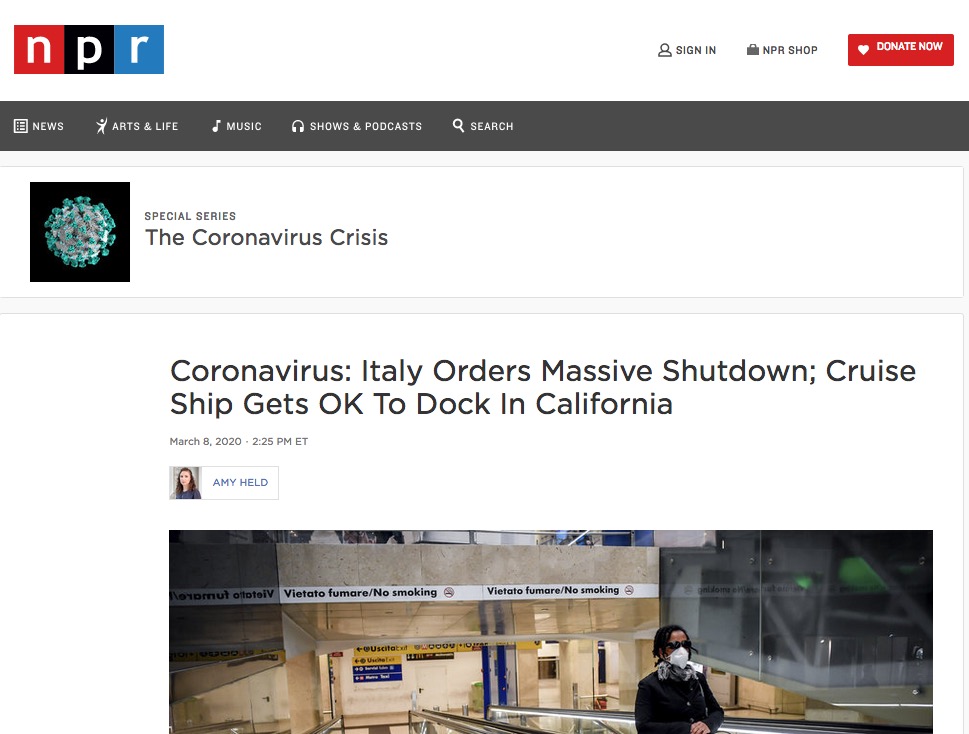
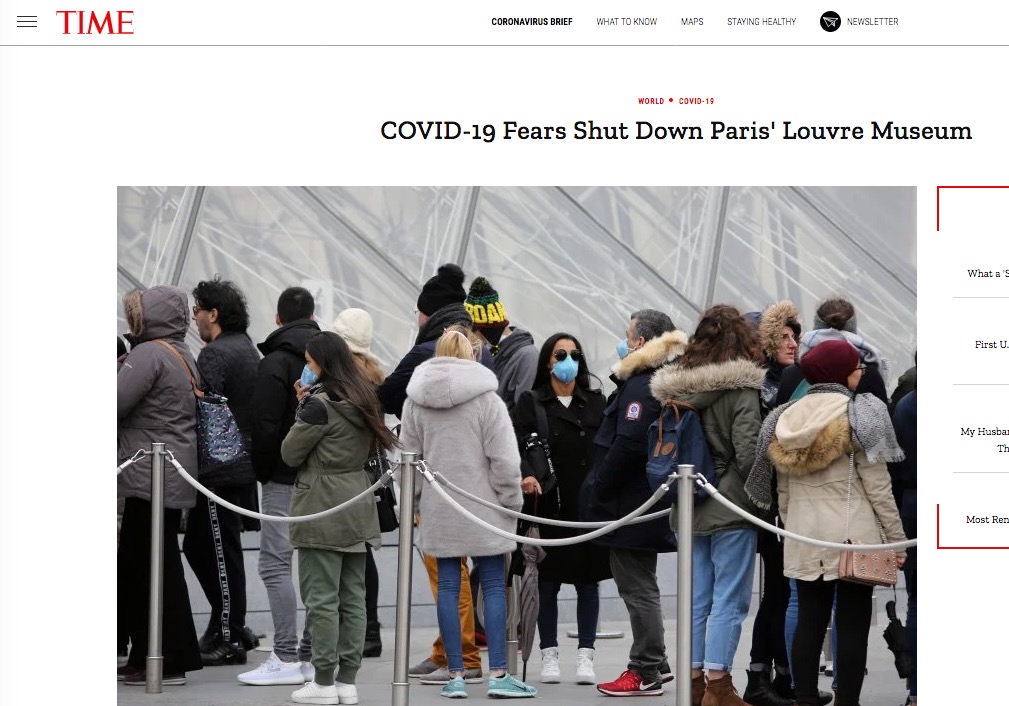
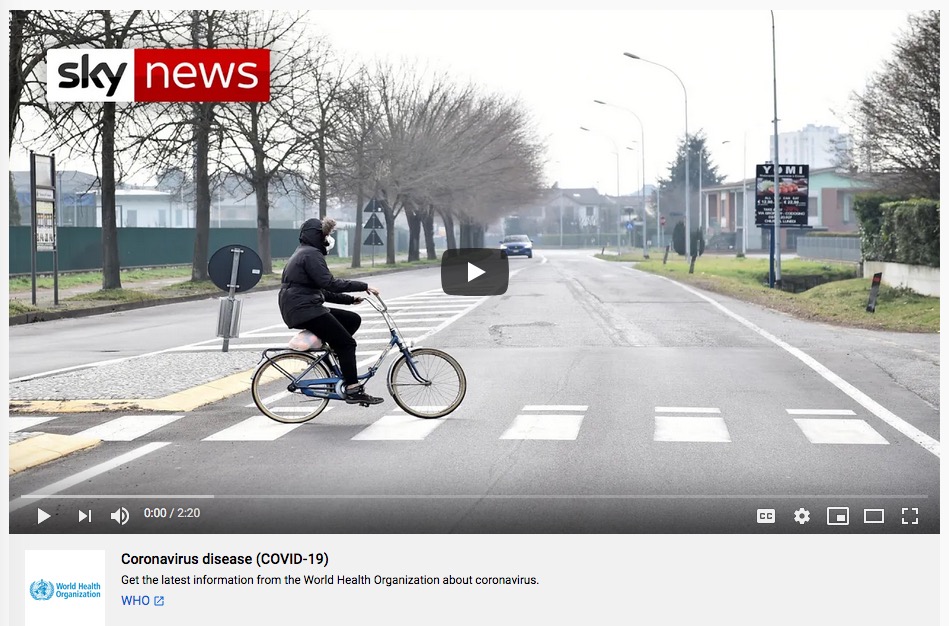
The greatest behavioral change in modern human history is in full swing. Covid-19 has proved more powerful than a nuclear missile. The word “terror” has taken on new meaning. Fear has gripped the world. None of the “futurists, thought-leaders and visionaries” and messiahs of “disruption” ever predicted a disruption of this magnitude. The “security experts” have no fix for an invisible and omnipresent threat. Face-masks have rendered multi-million dollar facial recognition technology useless. Crisis management gurus are dispensing banal recovery advice. And “Resilience” looks like it’s a long way away.
Everybody is affected – celebrities, politicians, sports stars, business leaders. No-one is safe from the great equaliser.
How did it come to this? The first pandemic in the age of cacophonous social media has claimed truth as its second casualty. Where and how did the virus originate? Some reports say in a biological warfare laboratory. Others attribute it to consumption of wildlife and endangered species. The facts may or not emerge later. What is certain, however, is the severity of the impact. It burst a balloon that the world unquestioningly believed could be inflated forever.
Over the past few years, every day would dawn with multi-sectoral, multi-channel bragging about growth, growth and more growth. This mindless pursuit of material gain disrupted the balance, a fundamental tenet of Nature and Good Health. Just as wellness centres marketed themselves as havens for restoring the physical and mental balance of their patients, Planet Earth has effectively checked into a wellness centre.
The crisis has created a golden opportunity to rebuild, repair, revitalise and rethink. It has freed up plenty of time for reflection and soul-searching. Exactly such a regular reboot was the original objective of the weekly Day of Rest – respectively Friday, Saturday and Sunday in the Islamic, Jewish and Christian monotheistic faiths. Some time-outs stretched over several weeks, such as the Buddhist Lent or the fasting month of Ramadhan. With the advent of consumerism and commercialism, holy days became holidays. Going to malls gained priority over going to churches, temples or mosques.
Travel & Tourism became a major component of consumerism and commercialism. Its devastating impact on global warming was well-recognised. If the number of domestic and foreign tourists was in the billions, and growing exponentially, so was their output of garbage, sewage, greenhouse gases, plastic, food-waste, etc. While international travel organisations excelled at generating virtually instantaneous statistics about visitor numbers and their economic impact, they never monitored the ecological impact equally closely.
Efforts to rectify this imbalance only began a few years ago, but were never comprehensively implemented. Now, thanks to Covid-19, our sources of survival — Air, Land and Water — are all getting some relief. Overnight, smog-choked cities are enjoying clean air. Practising “sustainability” and reducing the impact of climate change no longer requires complex negotiations, aid money, erudite consultants or highfalutin campaigns. Free time is no longer a luxury commodity.
Covid-19 has fixed everything.
Just like in Boracay, a “New Improved” world order will emerge. The way people meet, eat, commute, socialize, study and network will never be the same again. Although Travel & Tourism is one of the worst affected industries, it will also be one of the most revolutionised industries in future.
As we await the recovery, some important questions are well worth asking. What lessons will the industry learn? Will it indulge in some soul-searching? Undertake some global deep-cleaning? Will it craft a more realistic “balance sheet?” Or, like a recovering alcoholic, will it go back to drinking? Having covered the Asia-Pacific Travel & Tourism industry for nearly 40 years, I am realistic enough to be pessimistic. Chances are that when the skies clear and the orgy of cut-throat discounts hit the market, the Gold Rush will pick up where it left off.
This is based on my belief that as an industry, Travel & Tourism has a relatively low IQ level. For example, it has never valued whistle-blowers and early-warners. It despises critics and dissidents who expose its less-glitzy side. Tax evasion, poor treatment of migrant workers, environmental corner-cutting, sexually-transmitted diseases, alcoholism, and many more such concerns, are all part of the Travel & Tourism fabric. Any whistleblower who dares to flag them becomes an instant outcast.
And yet, when the post-mortem begins, a courageous whistleblower will prove to be the most important player. A Chinese doctor who sounded an early warning in the earliest stages of Covid-19 detection was silenced in the best of dictatorial traditions and later died. He was proven right. China then swung into action. Today, after curbing the spread, China is positioning it as a triumph worthy of global respect. But the whistleblower doctor’s heroism will never be recognised for fear that other non-medical whistleblowers may step up.
No-one in the Chinese or global Travel & Tourism industry will dare to mention it, even though they know well that had the doctor’s warnings been heeded, perhaps the outbreak would never have reached this stage.
For sure, the next crisis is waiting in the wings, along with clear early-warnings. Global powers are still involved in parochial power struggles. Last year’s U.S-China trade war has migrated to this year’s virus-war as the two countries trade charges over its source. As pharmaceutical companies rush to find a vaccine, warnings are being sounded about giving any one company or country a monopolistic patent. At the end of it all, governments will be under huge financial pressure to relieve the economic fallout. Where will the money come from? Who will pay? How?
Cleaning up the mess will take years. For sure, getting people back to work must remain a priority, but the wisest and most visionary national government and tourism organisation will be that which endeavours to balance the short- and long-term goals. The Covid-19 crisis has already disrupted the very first two months of the “Decade of Delivery” of the UN Sustainable Development Goals. Reverting to the imbalanced business-as-usual mode will only make achieving them harder still.
As Boracay and the temporarily hyped threat of overtourism taught global Travel & Tourism, the higher you rise the harder you fall. Suffering short-term pain is a must for long-term gain. But such suffering can be mitigated and to some extent averted if early warnings are heeded and a balanced perspective and policy approach is maintained right from the outset. Prevention is better than cure.
That is the over-arching lesson Travel & Tourism needs to learn.
Except that it won’t.



Liked this article? Share it!